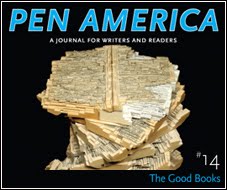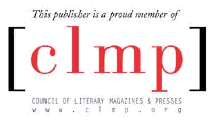 “Is literature about ‘understanding’? Does that make sense to you?” So Richard Ford asks Nam Le (pictured left, in a photo by Nigel Parry taken for Esquire) in the pages of PEN America 11: Make Believe. The conversation is called “Fabrications,” and part of it is online (for the rest you'll need to buy the issue).
“Is literature about ‘understanding’? Does that make sense to you?” So Richard Ford asks Nam Le (pictured left, in a photo by Nigel Parry taken for Esquire) in the pages of PEN America 11: Make Believe. The conversation is called “Fabrications,” and part of it is online (for the rest you'll need to buy the issue).Nam tells Ford no, it doesn’t make sense to him; Ford says that makes him happy. To which Nam replies: “You shouldn’t take any comfort in that—a lot of things don’t make sense to me.” “I take my comfort where I take my comfort,” Ford responds.
The conversation is full of such quick, barbed, and illuminating back-and-forths. Ford asks Le about writers and place (“I think we’re all in an eternal nowhere all the time,” Le says), writers and lying (“what you’re doing as a writer is engaging in a big con”), writers and science (“I think of myself as an unashamed vitalist, a crackpot chemist of words”), writers and politics (“I think we use the word ‘politics’ the way we use the word ‘emotion’... ‘Aw, I got really emotional at that point,’ we say, as though emotion is something that exists on the edge of experience... but we’re awash in an ocean of emotion all the time”).
Eventually Le gets going about the problems with “character-based fiction.” He doesn't want readers, he says, to think that “a story between this person and that person is the ambassadorial story for their time and place in history.” And they go on to discuss writing reviews (or not), Nam’s story “Love and Honour and Pity and Pride and Compassion and Sacrifice,” and the way that writing fiction can be, as Ford puts it, “a kind of clerical nightmare.”
Read the online portion, then pick up a copy and enjoy the rest.
PS. There are two PEN events coming up soon. The first is on Wednesday, December 2, at Housing Works at 7 pm. Uwem Akpan, Juan Felipe Herrera, Lily Hoang, and Brendan Curry will talk with Jane Ciabattari of the National Book Critics Circle in celebration of the 2009 Beyond Margins Awards.
Then, a week from today, at 6:30 pm at NYU Law School, a group writers, legal scholars, and advocates including Nadine Strossen, Laura W. Murphy, Walter Dean Myers, Jonathan Todres, Deborah Ellis, Uzodinma Iweala, and
Both events are free and open to the public.




